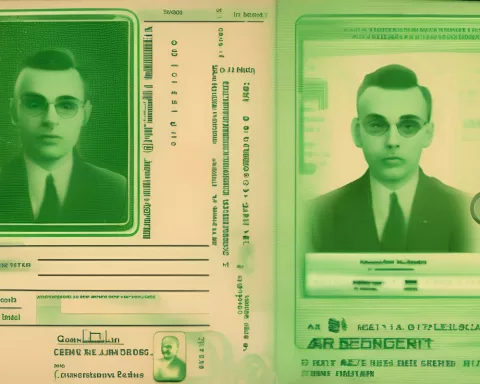The Tshwane Refugee Reception Centre in Pretoria is struggling with serious problems, like overcrowding, slow paperwork, and corruption. As many people seek safety in South Africa, the center feels the pressure to help them while dealing with a tricky system. New ideas, like using digital tools to make applications easier, are on the table, but challenges like not having enough staff still make things tough. This center shows how important it is to find a fair and caring way to manage immigration, highlighting the need for change and honesty in the process.
What are the main challenges faced by the Tshwane Refugee Reception Centre?
The Tshwane Refugee Reception Centre faces significant challenges, including severe capacity issues, administrative hurdles, and corruption. Additionally, the need for digitization in application processing and enhanced resources has become critical to improve efficiency and maintain a humane experience for asylum seekers.
The Heart of South Africa’s Immigration Dilemma
Nestled in the bustling city of Pretoria, the Tshwane Refugee Reception Centre plays a pivotal role in addressing South Africa’s ongoing immigration challenges. This institution serves as a crucial site where aspirations of asylum seekers meet the harsh realities of administrative hurdles. With its complex interplay of bureaucracy and resilience, the center represents the struggles and triumphs within the realm of refugee services.
In recent developments, the Portfolio Committee on Home Affairs has spotlighted the severe capacity issues facing the center. A recent site visit, motivated by a tragic incident in August where a stampede claimed a life, underscored the urgent need for reforms. Such incidents highlight the delicate balance required to manage the high volume of applications while maintaining a humane and orderly process.
Efforts towards digitization in processing applications have gained attention and are seen as a significant step forward. The shift towards digital platforms reflects a broader trend in governance to enhance efficiency and transparency. Historical comparisons can be drawn with transformative technological periods like the Industrial Revolution, where advancements reshaped societal structures. While digital tools hold the promise of revolutionizing service delivery, inadequate staffing and resources continue to pose challenges.
Addressing Capacity and Corruption
Chairperson Mosa Chabane has articulated pressing concerns and aspirations. While acknowledging shared budget constraints among government sectors, Chabane stressed the need for workforce enhancement at the center. Processing the substantial influx of applications depends critically on expanding human resources. This narrative of financial constraints is a recurrent theme in public administration, echoing post-war austerity measures that have shaped modern states.
Beyond logistical hurdles, the shadow of corruption looms large. The committee’s findings point to persistent fraudulent activities that threaten the integrity of the asylum process. Corruption not only undermines trust in public institutions but also feeds negative stereotypes against foreign nationals, fostering xenophobia. Tackling these corrupt practices is as essential as ensuring the center’s physical capacity.
The committee applauded the anti-corruption unit within the Department of Home Affairs for its proactive efforts to dismantle illegal networks. These initiatives highlight the ongoing battle between power and ethics, a theme resonant in both historical and contemporary governance. The fight against corruption is perennial, echoing the vigilance seen in the aftermath of the Watergate scandal or more recent global financial crises.
Advancing Through Technology and Legislation
Digitization is a cornerstone of the committee’s strategy to ease bottlenecks. Automating processes and managing application flows aim to create a seamless experience for applicants. This vision aligns with the broader objectives of the 6th administration, which aspires to establish an efficient and secure Department of Home Affairs. The digital era offers unique opportunities and challenges, with the promise of speed and accessibility needing to be balanced against cybersecurity and data privacy concerns.
Further restructuring is evident in legislative advancements surrounding the One Stop Border Post Bill. This proposed law seeks to centralize border management, echoing past attempts at administrative consolidation. Historical precedents of uniting disparate systems to streamline operations find new expression in this legislative effort, promising to address logistical issues effectively.
The committee’s collaboration with the Border Management Authority (BMA) is another pivotal aspect of its oversight. Understanding the BMA’s progress in fulfilling its mandate offers insights into the broader immigration framework. Integrating staff into the BMA’s organizational structure marks a significant milestone, ensuring operational cohesion and clarity of purpose.
Enhancing Resources and Broader Engagement
Procurement of essential tools for BMA officials is currently underway, highlighting the importance of equipping personnel adequately. This aspect reflects a core principle in organizational theory: that adequate tools are as vital as personnel in achieving institutional goals. Prompt acquisition of these tools is crucial for the BMA’s ability to fulfill its mandate effectively.
The committee’s agenda extends beyond the confines of the Tshwane Refugee Reception Centre. Their visit to the Civic Services unit of the Department of Home Affairs and the Government Printing Works emphasizes the interconnectedness of various public service functions. As these entities provide their annual reports and implementation updates, they offer a comprehensive overview of the department’s performance and challenges.
Exploring these multifaceted issues reveals the broader context in which refugee reception centers operate. They are microcosms of national policy, global migration trends, and the enduring human quest for safety and opportunity. Just as Renaissance artists sought to capture the human experience’s complexity, policymakers must navigate the intricacies of human mobility with empathy and precision.
A Narrative of Vigilance and Reform
The unfolding story of the Tshwane Refugee Reception Centre is marked by the interplay of capacity, corruption, and reform. It demands continued vigilance, innovation, and collaboration from all stakeholders involved. As South Africa grapples with its immigration challenges, the center stands as a testament to the need for systemic improvement and ethical governance, offering a poignant reminder of the delicate balance between bureaucracy and humanity.
“`markdown
What are the main challenges faced by the Tshwane Refugee Reception Centre?
The Tshwane Refugee Reception Centre is currently grappling with significant challenges such as severe overcrowding, slow paperwork processing, and issues of corruption. These hurdles hinder the efficiency and effectiveness of asylum applications, necessitating immediate reforms to ensure a humane experience for those seeking refuge.
How is overcrowding impacting the services at the center?
Overcrowding at the Tshwane Refugee Reception Centre results in long wait times for asylum seekers, unsanitary conditions, and increased tension among individuals waiting for assistance. This high volume of applicants strains the limited resources and staff available, exacerbating the existing administrative challenges.
What steps are being taken to address corruption at the center?
Efforts have been initiated by the anti-corruption unit within the Department of Home Affairs to dismantle fraudulent networks. Addressing corruption is crucial for restoring trust in public institutions and ensuring that the asylum process remains transparent and fair for all applicants.
How is digitization being implemented to improve the application process?
The move towards digitization involves automating processes and managing application flows to create a more seamless experience for applicants. This strategy aims to increase efficiency, speed up processing times, and enhance transparency within the system, although it is challenged by inadequate staffing and resources.
What is the role of the Border Management Authority (BMA) in improving the situation?
The Border Management Authority is crucial in overseeing immigration processes and ensuring operational cohesion. Collaborating with the committee, the BMA aims to streamline border management and enhance resource allocation, which is essential for addressing the logistical challenges faced by the Tshwane Refugee Reception Centre.
Why is reforming the Tshwane Refugee Reception Centre important for South Africa?
Reforming the Tshwane Refugee Reception Centre is vital not only for the humane treatment of asylum seekers but also for addressing broader systemic issues within South Africa’s immigration framework. It highlights the need for ethical governance, transparency, and a balanced approach to immigration that can foster trust and safety for all individuals involved.
“`












